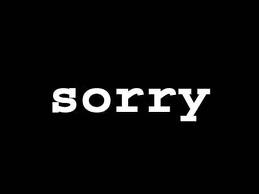


Avoiding Social Media Turbulence and PR Disasters: Airline CEOs Speak Out on Crisis Communications
No one knows more about disaster and crisis communications than the airlines. That’s why we have little doubt in our minds that the CEO of United Airlines, in the immediate aftermath of Dr. Dao getting hauled off the plane by police officers a few months ago, was indeed given the right advice by his crisis/PR people – but he opted to listen to his attorneys, instead, taking way too long to issue the immediate apology that he should have.
Here, one of his first interviews in the aftermath of the Dr. Dao haul-off. We’re not sure we agree with everything he said. Regardless, it should be of-interest to all crisis managers and crisis communicators.

From left: CNN’s Richard Quest; Rickard Gustafson, SAS CEO; Oscar Munoz, United CEO; Peter Bellew, Malaysia CEO; Enrique Beltranena, Volaris CEO. Image via IATA
APEX Insight: As a result of social media and in-flight connectivity, airlines are confronted by live sharing of operational crises and onboard incidents which quickly go viral and can do serious harm to airline brands. Is this the new status-quo, or can the industry adapt and get ahead of today’s speed of sharing?
Speaking to CNN’s Richard Quest during the CEO Q&A panel at this year’s IATA Annual General Meeting (AGM), SAS CEO Rickard Gustafson, United CEO Oscar Munoz, Malaysia Airlines CEO Peter Bellew, and Volaris CEO Enrique Beltranena answered poignant questions on what airlines can do to respond to sparks on social media before they blaze out of control.
“My first reaction should have been to do what I ultimately did, which was to apologize first.” — Oscar Munoz, United CEO
Quest asked Oscar Munoz to share what he had learned from the brand crisis United suffered following the incident of the forced removal of Dr. Dao from a United Airlines flight, operated by one of its regional airline partners. “For us, who have been around for a long period of time, the policies and procedures that we have in our companies are built on things like safety, and have become too rigid,” he explained. Munoz emphasized that safety is paramount, but that corporate communications procedures and crisis management should allow for a more flexible and considered reply during “a crisis of that magnitude.” “My first reaction should have been to do what I ultimately did, which was to apologize first,” he said.
According to Bellew, during a crisis, in today’s social media-driven news cycle, “you’ve got 15 minutes or less to say sorry.” Beltranena suggested CEOs have less than 10 minutes to apologize. But Munoz argued that sometimes – especially if that early window to respond has lapsed – it is better to wait. “I think you have more time than you think to respond to this and to respond correctly. The escalation is critically important,” he said. “If I had waited a little more time, I think my initial response would have been different.”
For the rest, click here.